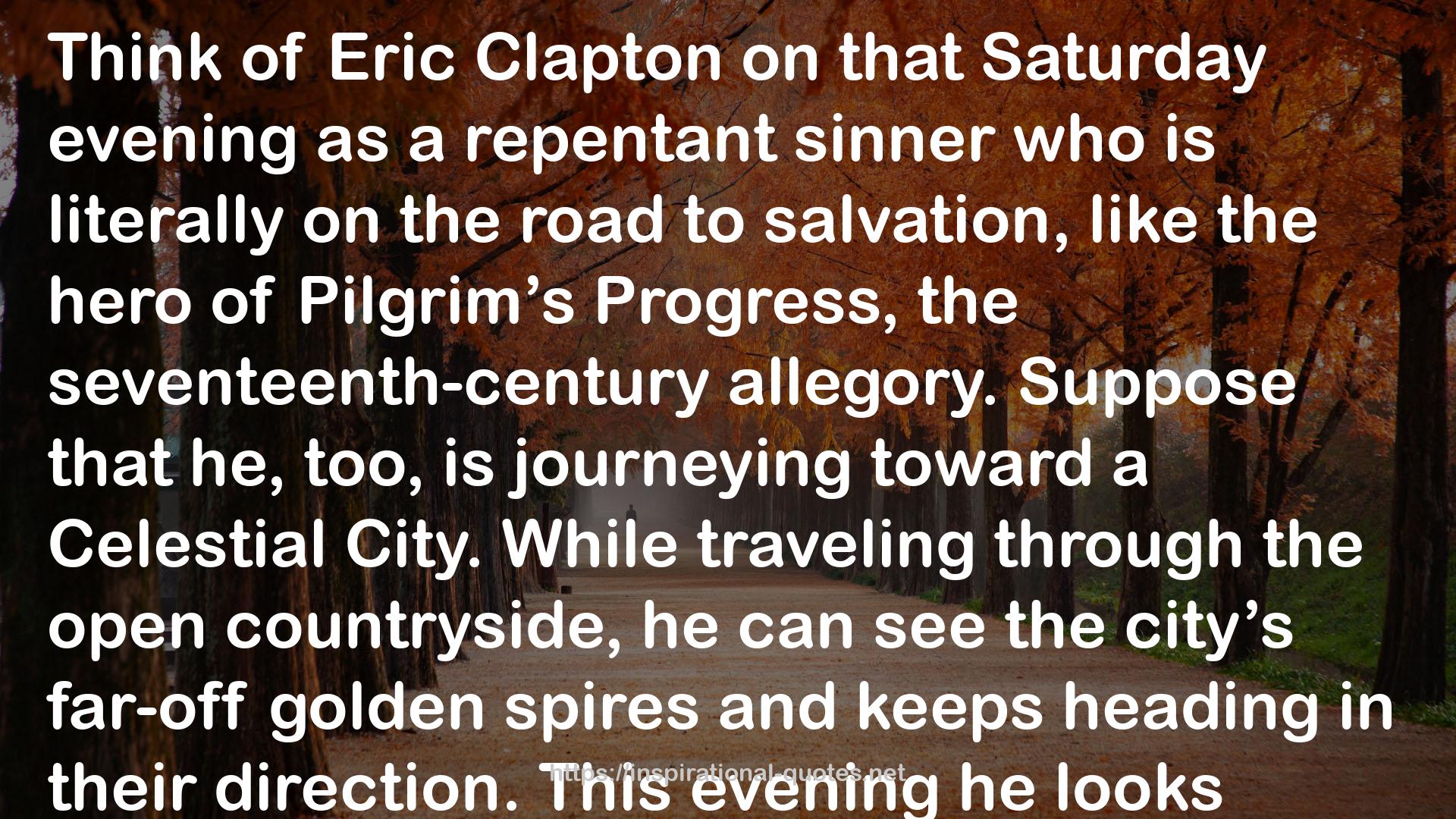" Think of Eric Clapton on that Saturday evening as a repentant sinner who is literally on the road to salvation, like the hero of Pilgrim’s Progress, the seventeenth-century allegory. Suppose that he, too, is journeying toward a Celestial City. While traveling through the open countryside, he can see the city’s far-off golden spires and keeps heading in their direction. This evening he looks ahead and notices a pub, strategically situated at a bend in the road so that it’s directly in front of travelers. From this distance it looks like a small building, and he still keeps his eyes fixed on the grander spires of the Celestial City in the background. But as Eric the Pilgrim approaches the pub, it looms larger, and when he arrives, the building completely blocks his view. He can no longer see the golden spires in the distance. Suddenly the Celestial City seems much less important than this one little building. And thus, verily, our pilgrim’s progress endeth with him passed out on the pub’s floor. That’s the result of hyperbolic discounting: We can ignore temptations when they’re not immediately available, but once they’re right in front of us we lose perspective and forget our distant goals. George Ainslie, a renowned psychiatrist and behavioral economist with the Department of Veterans Affairs, worked out the mathematics of this foible by using some clever variations of the familiar experiments testing long-term and short-term rewards. For instance, if you won a lottery with a choice of prizes, would you prefer $100 to be paid six years from today, or $200 to be paid nine years from today? Most people will choose the $200. But what if the choice were between $100 today and $200 three years from today? A rational discounter would apply the same logic and conclude once again that the extra money is worth the wait, but most people will instead demand the quick $100. Our judgment is so distorted by the temptation of immediate cash that we irrationally "
― Roy F. Baumeister , Willpower: Rediscovering the Greatest Human Strength
